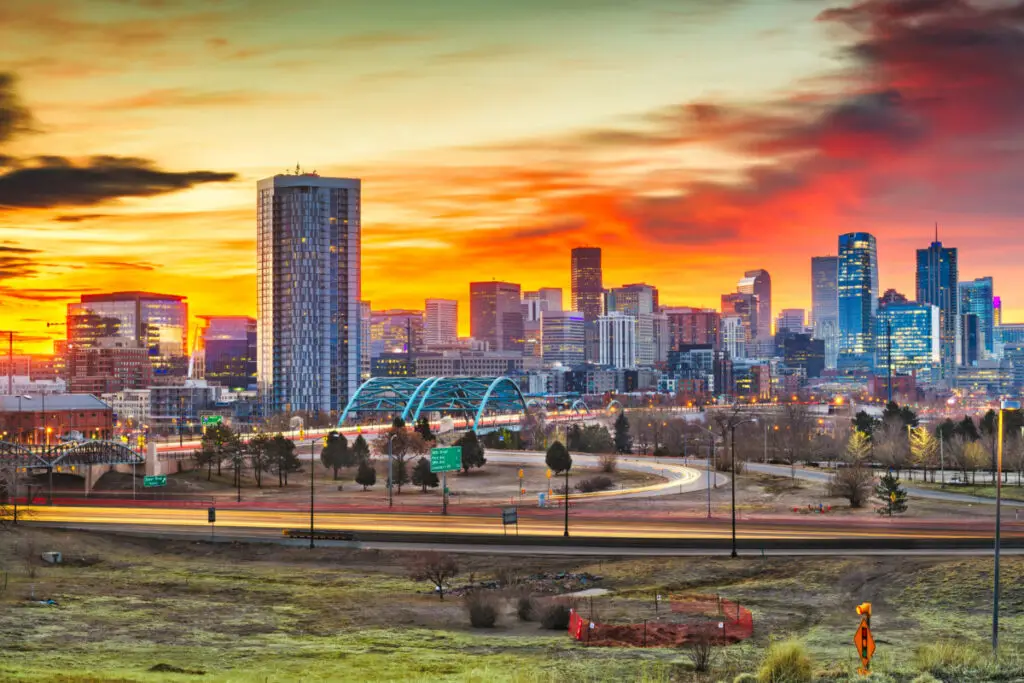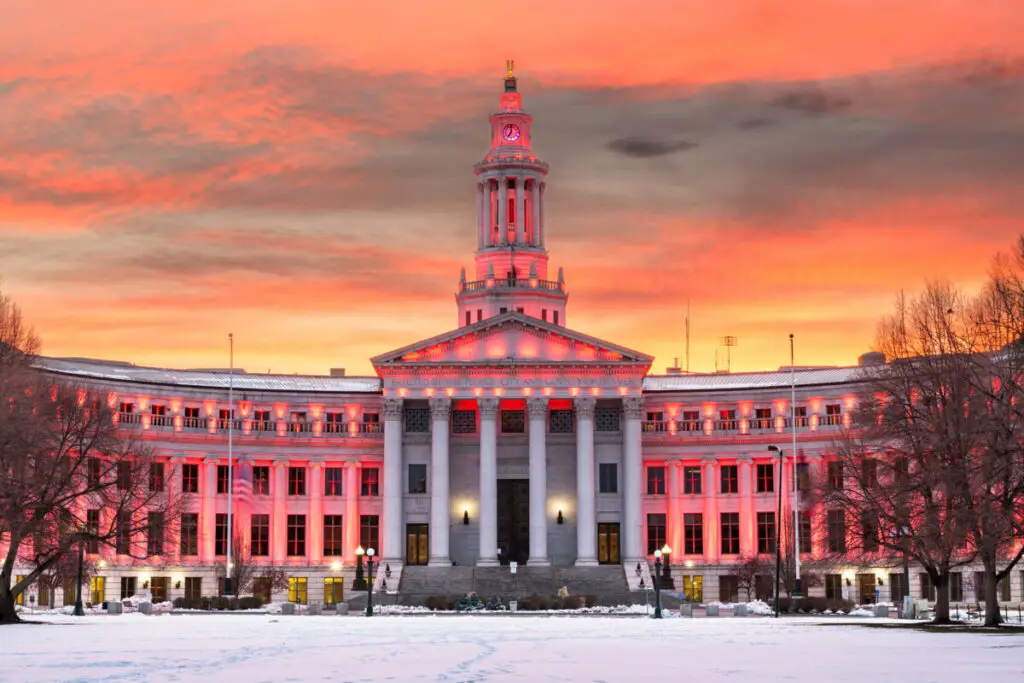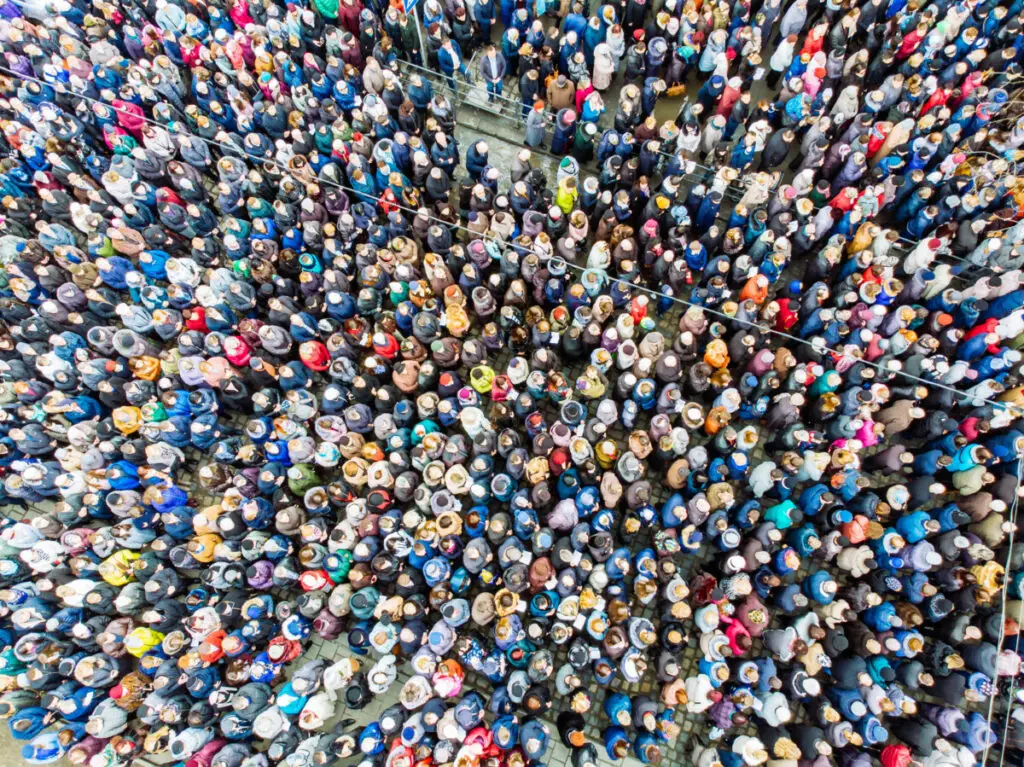
Politics is becoming more and more important these days, and many people want those around them to share their political beliefs. If you live in Denver, Colorado, will your neighbors most likely be liberal or conservative?
Denver, CO is a very liberal city. Most Denver residents voted for the Democratic candidate in all the presidential elections from 2000 to 2020. Colorado is a swing state, but the electoral college vote went to the Democratic candidate in four of the last six presidential elections.
There are many aspects to the political climate of a city that need to be considered when determining the political leaning of that city. A few of these are the results of presidential elections, the local leaders, the policies that have been enacted, and the demographics.
Presidential Elections
The results of presidential elections in a city can be a big indicator of whether that city is liberal or conservative. The two major political parties in the United States, the Democratic party and the Republican party, represent the two perspectives. The Democratic Party members tend to be liberal, and the party supports liberal policies. The Republican party members tend to be conservative, and the party supports conservative policies. If the majority of people in a city vote for the Democratic candidate, then the city is more than likely mostly liberal. If most of the residents vote for the Republican candidate, then the city is probably conservative.
The state of Colorado is a swing state . Most states can be counted on the vote for one political party consistently. However, swing states can go either way. These states are the ones that determine the results of an election, depending on which candidate wins that election.
. Most states can be counted on the vote for one political party consistently. However, swing states can go either way. These states are the ones that determine the results of an election, depending on which candidate wins that election.
Between 2000 and 2020, Colorado voted for the Democratic candidate four times and the Republican candidate two times over the course of those six elections. The Republican candidate won in 2000 and 2004, while the Democratic candidate won in 2008, 2012, 2016, and 2020. The percentage differences were less than ten percent in all elections except for the 2020 election, when the difference was 13.5%.
In the 2020 election, 55.4% of the population voted for the Democratic candidate, and 41.9% voted for the Republican candidate. The percentage of independent voters was on the low side that year.
Denver county, which is where the city of Denver is, is a very liberal county . The Democratic candidate won in every election from 2000 to 2020. The differences in the percentages of Democratic and Republican voters were over 30% in all of those elections. The lowest percentage difference was 30.99% in 2000. The highest difference was 61.36% in 2020. As those numbers make clear, that county is heavily liberal.
. The Democratic candidate won in every election from 2000 to 2020. The differences in the percentages of Democratic and Republican voters were over 30% in all of those elections. The lowest percentage difference was 30.99% in 2000. The highest difference was 61.36% in 2020. As those numbers make clear, that county is heavily liberal.
In the 2020 election, 79.55% of the voters in Denver county voted for the Democratic candidate. Only 18.19% of voters voted for the Republican candidate that year.
Denver, Colorado is a very liberal city. The city voted for the Democratic candidate in all of the presidential elections between 2000 and 2020. The difference between the percentages of Democratic and Republican votes was higher than 10% in all of these elections.
Between 2018 and 2021, there were 117,383 contributions to the Democratic party. These contributions added up to $24,137,216. The Republican party only had 16,348 contributions during that time period; the total was $15,977,734. The donations to the Republican party were about 5 times larger than those to the Democratic party, which is why, even though the number of contributors is so much fewer, the money they made is only about $10,000 less.
Local Leaders

The local leaders of a city can often indicate the political leanings of that city. These are officials that the residents have elected based on their promises. The political parties, campaign platforms, and supported policies of the leaders in Denver can help us determine what political party the city is.
Mayor
The mayor of Denver proposes and oversees the budget, approves or vetoes resolutions from the council, appoints directors of departments, and oversees operations of the city.
The current mayor of Denver is Michael Hancock . He is on his third term in office, which will end in 2023. He is the second African American mayor of Denver. He served on the city council for eight years, some of them as city council president.
. He is on his third term in office, which will end in 2023. He is the second African American mayor of Denver. He served on the city council for eight years, some of them as city council president.
Mayor Hancock has enacted policies during his time in the office such as A Livable Wage for Denver, which increased the minimum wage in Denver. He also started the Mobility Action Plan, which improved transportation choices. He also supported the Youth Violence Prevention Action Table, which would collaborate among city and private resources to prevent and intervene in violence against youth.
The mayoral elections in Denver are nonpartisan, but the initiatives Hancock takes on and his focus on supporting youth show an affiliation with the Democratic party.
City Council
The Denver city council is in charge of funding to run the city, passing or altering laws, approving mayoral appointees, and voting on zoning matters. The city council has thirteen members. Eleven of these members are from the eleven districts of the city and are elected only by the residents in these districts. The remaining two are elected by the city as a whole.
is in charge of funding to run the city, passing or altering laws, approving mayoral appointees, and voting on zoning matters. The city council has thirteen members. Eleven of these members are from the eleven districts of the city and are elected only by the residents in these districts. The remaining two are elected by the city as a whole.
There are eight women on the city council and five men. Five of the city council members are on their first term, while six of them are on their second, and two are on their third. All members of the city council are considered nonpartisan.
Policies
When certain policies are in place in a location, it can give us a good idea of the political leaning of that place. Those with liberal beliefs tend to support legal abortion, more gun control laws, and gay marriage, while those who are conservative tend to oppose these.
Abortion
Abortion laws in Colorado are more lenient than in many other states. Abortion is not covered by public funding or insurance for public employees unless there is life endangerment, rape, or incest involved. When a minor wants an abortion, their parent must be notified beforehand.
in Colorado are more lenient than in many other states. Abortion is not covered by public funding or insurance for public employees unless there is life endangerment, rape, or incest involved. When a minor wants an abortion, their parent must be notified beforehand.
In 2017, there were 32 facilities that provide abortions, 18 of which were clinics. 80% of counties in Colorado do not have clinics, leaving 27% of women without access to an abortion clinic.
Gun Control
Colorado had the 22nd highest gun death rate in the United States in 2020 and the 21st highest gun export rate.
Colorado gun laws include universal background checks, a large capacity magazine ban, child access prevention laws, state database background checks, disarming procedures, lost and stolen gun reporting, and local regulation. Colorado gun laws do not include gun owner licensing, assault weapon restrictions, waiting periods, or strong open or concealed carry laws.
include universal background checks, a large capacity magazine ban, child access prevention laws, state database background checks, disarming procedures, lost and stolen gun reporting, and local regulation. Colorado gun laws do not include gun owner licensing, assault weapon restrictions, waiting periods, or strong open or concealed carry laws.
Gay Marriage
Colorado legalized gay marriage on October 7, 2014 . This was nine months before the Supreme Court mandate that required all states to legalize same-sex marriage. Colorado was the 25th state to do so.
. This was nine months before the Supreme Court mandate that required all states to legalize same-sex marriage. Colorado was the 25th state to do so.
Demographics

The population of Denver is 735,538 people. The population density of Denver is 4,798 people per square mile. 50.0% of the population is female, and 50.0% of the population is male. The median age in Denver is 34 and the average number of people per household is 2.3.
of Denver is 735,538 people. The population density of Denver is 4,798 people per square mile. 50.0% of the population is female, and 50.0% of the population is male. The median age in Denver is 34 and the average number of people per household is 2.3.
The racial makeup of Denver is as follows:
of Denver is as follows:
- White: 53.6%
- Black: 9.2%
- Hispanic/Latino: 30.5%
- Asian: 3.5%
- Native American: 0.5%
- Hawaiian/Pacific Islander: 0.1%
- Two or More Races: 2.3%
- Other: 0.2%
41.3% of Denver residents are married and 12.8% are divorced. 32.3% of the population are married with children and 20.0% are single with children.
of Denver residents are married and 12.8% are divorced. 32.3% of the population are married with children and 20.0% are single with children.
The average income in Denver is $34,423 per year. The median household income is $51,800 per year. The unemployment rate is 7.1%. The sales tax rate is 7.7%, and the income tax rate is 4.8%.
in Denver is $34,423 per year. The median household income is $51,800 per year. The unemployment rate is 7.1%. The sales tax rate is 7.7%, and the income tax rate is 4.8%.
86.7% of residents are high school graduates and 17.3% are only high school graduates. 28.4% have two-year degrees, 46.5% have four-year degrees, 4% have master’s degrees, and 1.9% have professional degrees.
of residents are high school graduates and 17.3% are only high school graduates. 28.4% have two-year degrees, 46.5% have four-year degrees, 4% have master’s degrees, and 1.9% have professional degrees.
52.7% of Denver residents are religious. 47.5% are Christian, 2.5% are Jewish, 2.0% are of eastern faith, and 0.5% are affiliated with Islam.
of Denver residents are religious. 47.5% are Christian, 2.5% are Jewish, 2.0% are of eastern faith, and 0.5% are affiliated with Islam.
The rate of violent crime on a scale of 1 to 100 is 30.7. The rate of property crime is 50.8. Both are higher than the national average.
on a scale of 1 to 100 is 30.7. The rate of property crime is 50.8. Both are higher than the national average.
Political History
The Denver local elections have been monopolized by the Democratic party since 1963, though elections are considered nonpartisan. There has been an increase in support for those experiencing homelessness and suffering through the cold winters. Denver residents tend to vote for Democrats in federal elections as well as local elections, voting for Democratic members of Congress, presidents, etc. Denver has been consistently liberal for a while.
Colorado was founded in 1876. It has been a swing state for quite some time. It has gone through periods where one party would win all elections in that time; the largest of these was when Colorado voted for the Republican candidate consistently between 1968 and 1988. This twenty-year period was the longest consistent streak of voting in the state’s history.
for quite some time. It has gone through periods where one party would win all elections in that time; the largest of these was when Colorado voted for the Republican candidate consistently between 1968 and 1988. This twenty-year period was the longest consistent streak of voting in the state’s history.
Related Topics:
If you like the article above, here are some other similar articles you should check out!
Is There Public Transportation in Denver, Colorado?
